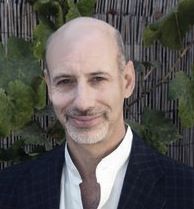The C.G. Jung Institute of New York offers a post-graduate clinical training program that prepares its students for a professional practice as a Jungian psychoanalyst and membership within a worldwide community of Jungian analysts. The training program is designed to meet the requirements for New York State licensure as a Psychoanalyst and students develop their clinical experience through the Institute’s Referral Service.
This clinical program aims to develop, within a community of students and practicing analysts, an analyst with personal and professional competencies in both theory and clinical practice. Throughout your training, you will engage in personal analysis, supervised clinical practice, and small classes that approach analytical work and clinical practice from both historic and contemporary perspectives. Within this style of training, Jungian analytical psychology is studied and applied in the context of an evolving psychological field where basic assumptions about human nature are assessed and applied to clinical theory and methods of practice.
The training program’s philosophy, institutional policies, and teaching methods are geared towards open dialogue, creative expression, and critical discussion with a small class structure. The teaching and supervising faculty have extensive clinical experience, are distinguished within the field, and come to psychoanalysis with a diversity of backgrounds from a variety of disciplines.
In addition to the experienced resident faculty, internationally recognized Analysts are invited to present their unique perspectives. Among these are Ashok Bedi, John Beebe, Jean Shinoda Bolen, Joan Chodorow, Michael Conforti, Mary Dougherty, James Hillman, Katherine Olivetti, and Nathan Schwartz-Salant.
 Anarah is an intuitive Life Coach who works with individuals, couples, and groups, to help them produce lasting changes in their lives. She has fused her background in counseling with her training in the esoteric arts to develop her own unique brand of transformational coaching, which she refers to as “Soul Coaching”.
Anarah is an intuitive Life Coach who works with individuals, couples, and groups, to help them produce lasting changes in their lives. She has fused her background in counseling with her training in the esoteric arts to develop her own unique brand of transformational coaching, which she refers to as “Soul Coaching”. Michael Gellert is a Jungian analyst practicing in Los Angeles and Pasadena, California. He treats individuals and couples and offers a psychotherapy group and a writing workshop. He was formerly Director of Training at the C. G. Jung Institute of Los Angeles, where he is currently a research instructor. He has also been a humanities professor at Vanier College, Montreal, and a lecturer in religious studies at Hunter College of the City University of New York. Prior to living in Los Angeles he lived in New York City, where he supervised District Council 37’s Personal Service Unit Outreach Program, an employee assistance program for employees of the City of New York.
Michael Gellert is a Jungian analyst practicing in Los Angeles and Pasadena, California. He treats individuals and couples and offers a psychotherapy group and a writing workshop. He was formerly Director of Training at the C. G. Jung Institute of Los Angeles, where he is currently a research instructor. He has also been a humanities professor at Vanier College, Montreal, and a lecturer in religious studies at Hunter College of the City University of New York. Prior to living in Los Angeles he lived in New York City, where he supervised District Council 37’s Personal Service Unit Outreach Program, an employee assistance program for employees of the City of New York.